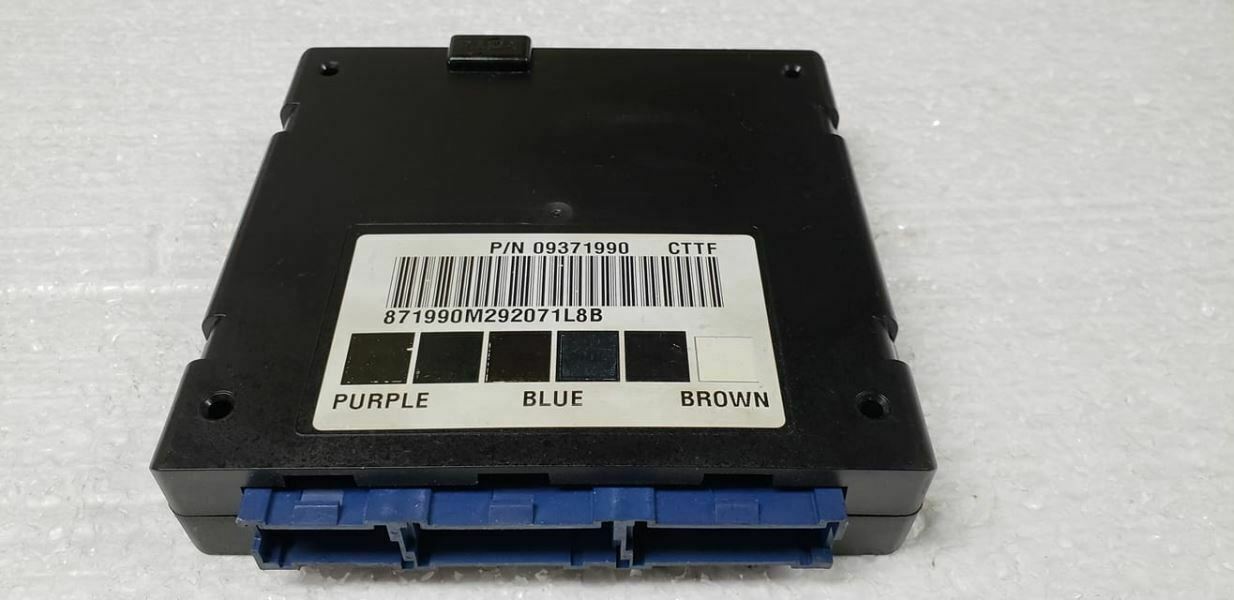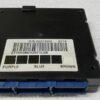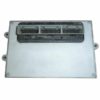Restore Your Van’s Electrical Systems with a Plug-and-Play BCM
If you’re dealing with baffling electrical issues in your 2001 GMC Safari—like power windows with a mind of their own, flickering interior lights, or a security system that randomly acts up—the root cause is often a failing Body Control Module (BCM). This module is the central command center for your vehicle’s body electronics, and when it malfunctions, it can create a cascade of frustrating problems. This replacement 2001 GMC Safari BCM is the reliable, straightforward solution to get your van back to 100% functionality.
We take the guesswork and dealership hassle out of the equation. Unlike sourcing a part from a junkyard or a generic retailer, we program this module specifically for your vehicle using your VIN. This ensures it communicates perfectly with your van’s other systems right out of the box. We load the latest GM software updates, which can often resolve issues that were present even in the original factory programming. Just provide your VIN at checkout, and we handle the rest.
Case Study: The Phantom Battery Drain
I once had a 2001 Astro van (which shares the same platform as the Safari) in my bay with a classic phantom battery drain. The owner had replaced the battery and alternator twice, but every few days, it would be dead. After hours of testing circuits, we traced the draw to the BCM. It wasn’t fully going to ‘sleep’ after the key was turned off, causing a slow but steady drain. Swapping in a properly programmed BCM didn’t just fix the drain; it also resolved a quirky issue the owner had with his dome lights not turning off correctly—a problem he’d lived with for years. This single part restored both reliability and convenience.
Common Signs of a Failing BCM
A faulty BCM can manifest in numerous ways. If your GMC Safari or a compatible vehicle is showing these symptoms, a failing module is the likely culprit. Keep an eye out for Diagnostic Trouble Codes (DTCs) like U-series communication codes (e.g., U0140) or B-series body codes.
- ✔ Power windows or door locks operating erratically or not at all.
- ✔ The security or anti-theft light stays on or flashes, potentially causing a no-start condition.
- ✔ Interior or exterior lights flickering, staying on, or not working.
- ✔ The horn sounding unexpectedly or not working when pressed.
- ✔ Inaccurate or non-functional gauges on the instrument cluster.
- ✔ Problems with the radio or climate control systems.
Your Step-by-Step BCM Installation Guide
Replacing the BCM in your GMC Safari is a manageable job for a DIY enthusiast. This 2001 GMC Safari BCM is designed for a direct fit, typically located behind the left-hand side of the dashboard.
- Safety First: Always disconnect the negative terminal from your vehicle’s battery before starting any electrical work.
- Locate the BCM: On most 2001 Safari and Astro vans, the BCM is found under the driver’s side of the dashboard, often near the steering column or kick panel.
- Disconnect and Remove: Carefully unplug the electrical connectors. These usually have locking tabs that need to be depressed. Once disconnected, unbolt or unclip the old module from its mounting bracket.
- Install the New Module: Mount your new, pre-programmed BCM in the same location. Securely plug in all the electrical connectors, ensuring they click into place.
- Reconnect the Battery: Reattach the negative battery terminal.
- Perform Post-Install Checks: Start the vehicle and test all body functions—windows, locks, lights, horn, and radio. Note any warning lights on the dash.
Important Post-Installation Notes
While our VIN programming handles the majority of the setup, some GM vehicles of this era may require additional steps after installation:
- Airbag System Sync: If the airbag warning light is on after installation, a ‘Setup SDM Primary Key in BCM’ procedure must be performed with a compatible high-level scan tool. This syncs the new BCM with the airbag system.
- Brake Pedal Position Relearn: On some models, a brake pedal position sensor relearn may be needed to ensure correct brake light operation and traction control functionality.
Confirmed Vehicle Compatibility List
This Body Control Module is a direct replacement for service numbers 19208539, 9371990, and 9385236. It is guaranteed to fit the following vehicles and options:
- 2001 GMC SAFARI (LH dash)
- 2001 CHEVROLET ASTRO (LH dash)
- 2001 CHEVROLET BLAZER S10 / GMC JIMMY S15 (center dash, ID 9385236)
- 2001 CHEVROLET S10 / GMC S15/SONOMA (center dash)
- 2001 OLDSMOBILE BRAVADA (center dash)
- 2000 CHEVROLET TAHOE / GMC YUKON (LH dash, exc. Denali, ID 9385236)
- 2000 CHEVROLET SUBURBAN 1500/2500 (LH dash, ID 9385236)
- 2000 GMC YUKON XL 1500/2500 (LH dash, ID 9385236)
- 2000 CHEVROLET SILVERADO 1500/2500 PICKUP (LH dash, ID 9385236 or 9371990)
- 2000 GMC SIERRA 1500/2500 PICKUP (LH dash, ID 9385236 or 9371990)
Frequently Asked Questions
Why do you need my VIN?
We require your Vehicle Identification Number (VIN) to program the BCM with the exact software and settings for your Safari’s specific options. This ensures compatibility and proper function, saving you a trip to the dealer for expensive programming.
Is this a plug-and-play part?
Yes, for most functions. Because we pre-program it to your VIN, it is designed to be plug-and-play. However, as noted, some vehicles may require an additional relearn procedure for the airbag or brake pedal position sensor if warning lights appear.
Do I need to send my old BCM back?
No. There is no core charge for this part. You can keep your original module, which saves you the time and expense of return shipping.
What tools are needed for the post-installation procedures?
The Airbag System Sync and Brake Pedal Position Relearn procedures require a professional-grade bidirectional diagnostic scan tool, such as a Tech 2 or equivalent. Many local repair shops can perform these services if needed.
Will this fix my ‘Service 4WD’ light?
While the BCM communicates with many systems, issues with the 4WD system are more commonly related to the Transfer Case Control Module (TCCM) or the encoder motor. It’s best to diagnose the specific trouble codes before replacing parts.
How do I find my original part number?
The part number is printed on a white label on the BCM itself. You will need to access the module in your vehicle to read it. This module replaces part numbers 9385236, 19208539, and 9371990.


